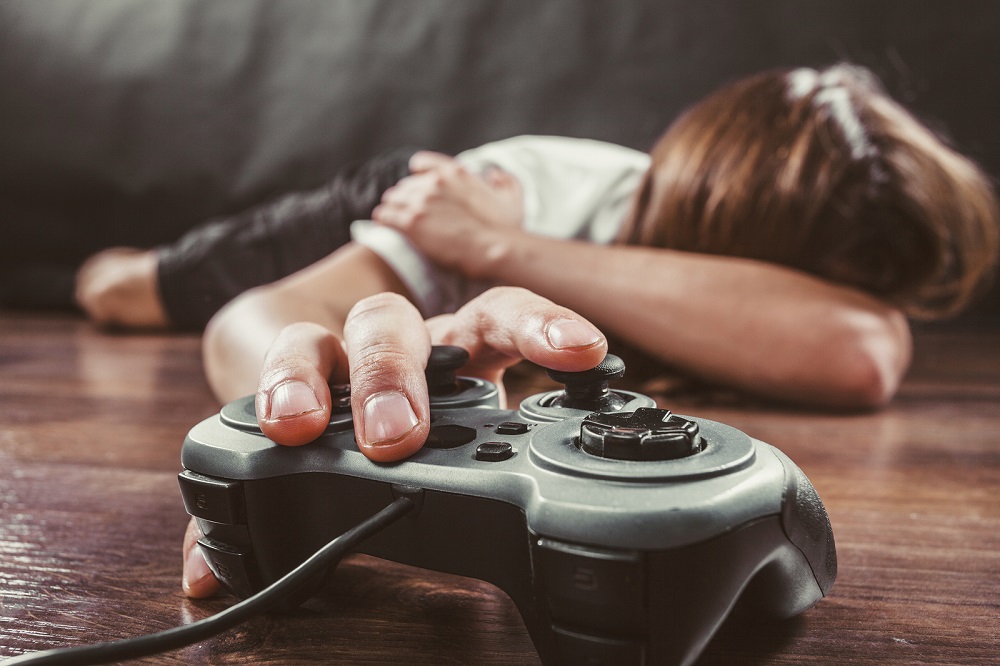by Mary Ann Kreitzer
I have a confession to make. I’m an addict. One night recently I spent about four hours feeding my addiction. Every time I finished one hit, I told myself to stop, but I didn’t. “This is ridiculous!” I kept telling myself. But then I started up again. How many fellow addicts imitate me? Probably millions, maybe hundreds of millions.
“What was I doing?” you may ask. I wasn’t shooting up or emptying an alcohol bottle, but my addiction that night was compelling. I was playing a silly computer game. I won’t mention its name so as not to tempt others. But it was a big wakeup call to me.
A little innocent diversion with games is no sin, but a compulsion to go on and on for hours is clearly a problem. So, except for a five minute Wordle game at breakfast, I’m giving up all computer and phone games for Lent. In fact, I’ve removed game apps from my smart phone.
This may be the hardest fast of my life. I love to play word games. But if moderation becomes too much of a challenge, it seems going cold turkey is the answer. I’m also severely limiting Facebook (FB) usage for Lent. It’s amazing to me how many people immediately react to something on FB almost before you’ve posted. Our smart phones seem to have become hungry mouths with an incessant demand to be fed -- fed with our attention and eating up our time.
Reflecting on all this didn’t send me to a twelve step program, but it did send me to the internet to research gaming addiction because if it can impact so strongly an old lady like me, what is it doing to our children and grandchildren?
A 2021 article in Psychology Today had this to say:
Every generation of youth has had its own slew of leisure activities that elicited concern from older generations—what is so different about gaming? Internet gaming is a perfect combination of sensory stimulation, novelty, variable ration reinforcement scheduling, social engagement, and limitless opportunities to advance that can be extremely rewarding to certain individuals. Indeed, gaming activates the reward system in the brain causing a release of dopamine and other neurotransmitters implicated in reward. For vulnerable individuals, (such as those with a genetic predisposition, co-occurring mental illness, history of trauma, or early exposure to gaming), the rewarding nature of gaming can lead to disordered or potentially addictive behavior.
How does one determine whether gaming is a serious problem? After all, speaking for myself, I’ve often stayed up for hours reading a gripping novel. (I’m currently re-reading Owen Francis Dudley’s series on the problem of suffering and the search for human happiness. I stayed up until almost 3:00 a.m. reading The Masterful Monk. Do I have a reading addiction if I stay up until the wee hours engrossed in a riveting story? Is it a serious problem? Probably not. But if any pursuit begins to take over your life in a way that affects your health and makes you neglect your responsibilities, it’s time to recognize the blinking yellow caution light and take action.
So what are the signs that gaming has become an addiction that needs to be addressed? First let’s define “addiction.” The Mayo Clinic says, “An addiction is defined as a person's inability to control use of a substance or behavior, despite negative consequences.” Mayo lists symptoms of video game and screen addiction including:
• Having intense urges for screen time or to play video games, ...[that] block out other thoughtsScreen addiction doesn’t just cause psychological problems, but physical problems as well. Repetitive motion injuries like carpel tunnel syndrome, trigger thumb and tennis elbow are common as well as neck and back issues and a tendency to obesity due to limiting physical movement. The artificial light from screens can interfere with sleep particularly when used near bedtime. Sleep deprivation leads to a whole myriad of problems.
• Spending money on video games or screens, even though you can't afford it
• Cutting back on... activities because of preference for screen time or video games
• Continuing to play video games...even though you know it's causing problems in your life, such as poor performance at school or work, or letting household responsibilities go
• Displaying signs of irritability, anxiety or anger when forced to stop playing, even for brief periods of time
• Lying to others about the extent of your use
• Needing more screen time over time to get the same level of enjoyment
• Neglecting your appearance, including lack of interest in grooming or clothing
Are video games so bad that the only answer is eliminating them altogether? Should Christians just pull the plug? Not necessarily. Games are not evil in themselves, so how can video gaming be categorized as intrinsically evil? Just like any other neutral thing (for example fire or firearms) video games can be used in a bad or good way.


Ms K:
ReplyDeleteNice article.
God bless
Richard W Comerford
Though I didn’t have an addiction to online games, I gave these up for Lent about 5 years ago.
ReplyDeleteI’ve been doing it ever since too.
Even though I still play them, the allure is no longer there at all.
The fastest way to get rid of any addiction is to give it up for Lent.